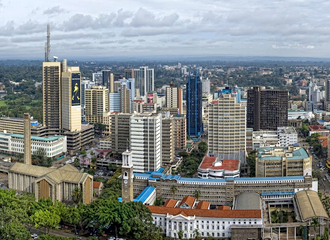International Surrogacy Laws
Surrogacy is subject to the laws and regulations in place across various countries around the world. So, if you are planning to pursue surrogacy in a certain country, you must be aware of the surrogacy laws of the particular country in advance to avoid any kind of legal hassle during your surrogacy journey.
Here, we bring you a brief overview of surrogacy laws across some of the most sought-after surrogacy destinations across the globe. You must thoroughly examine international surrogacy regulations if you’re thinking about carrying out an overseas surrogacy to ensure that the procedure will be totally legal and ethical.
Surrogacy in Bangkok
Today, intended parents from outside Thailand are prohibited from using surrogates. Commercial surrogacy was officially outlawed for all intended parents in 2015 given to a federal law that was passed (banning the surrogacy process completely for international intended parents). Since 2014, the military administration had forcibly shut down the commercial process.
Only married heterosexual Thai couples are now able to complete surrogacy in Thailand. The couple must have been married for at least three years and at least one spouse must be a Thai national. Even if they are Thai citizens, singles of all sexual orientations and homosexual couples are not allowed to complete a surrogacy in Thailand.
Any surrogate must also be a sibling of one of the parents. She needs to be married, have her own child, and obtain her husband’s approval for the surrogacy procedure.
On the other hand, any selling of ovum, sperm, or embryos is prohibited in Thailand as well in an effort to combat the commercial use of assisted reproductive technology. As you can see, it is extremely challenging for any Thai citizen to accomplish a Thailand surrogacy, in addition to being impossible for intended parents from other countries.
Surrogacy in Kenya
Although still unregulated, surrogacy is accepted commonly in Kenya as a fertility treatment. The Kenyan constitution protects the freedom to create and be a member of a family, even going so far as to refer to the family as the natural and essential unit of society and the essential foundation of social order. It is therefore not unexpected that IVF and surrogacy are commonly accepted in Kenya while being viewed with skepticism by religious authorities.
Since surrogacy is effectively prohibited in Southern and Southeast Asia, various agencies are providing affordable surrogacy choices in Kenya and other places. Couples are being drawn to the area by the promise of a very affordable surrogacy program.
The best part here is that surrogacy in Kenya is permissible regardless of the sexual orientation of the person. Given these reasons, the country has attracted thousands of surrogacy-seeking individuals over the past few years.
Surrogacy in Georgia
Since 1997, commercial or compensated surrogacy has been permitted in Georgia. According to Georgian law, the surrogate mother has no parental rights over the child she delivered. Only intended parents who are lawfully married and heterosexual are permitted to use surrogates in Georgia.
The benefit of choosing Tbilisi surrogacy clinics is that the intended parents will be the kid’s legal parents even after the child is delivered from the surrogate mother’s womb.
The Gestational Carrier Agreement included the compensation sum that had been agreed upon between the client and the surrogate as well as other terms and conditions, including the client’s legal rights.
Prior to the notary public’s presence, the intended parents and surrogates must both properly sign the contract. The extent of any kind of issue or obstacle is therefore minimal.
Surrogacy in Argentina
Surrogacy isn’t illegal in Argentina as of now. The Senate and the Chamber of Deputies in Congress gathered on June 5, 2013, and passed Law 26,862, generally known as the “National Law on Assisted Fertilization,” and it was promulgated on June 25 of that same year. It is a rule of public order with widespread application that permits and regulates the widest range of options for fertilization and implantation as well as the cryopreservation of genetic material and embryos without the need for significant safeguards.
The objective of the rule is to “guarantee full access to medical-assistance procedures and techniques for medically assisted reproduction” (Article 1).
By “medically assisted reproductive procedures and techniques,” the standard refers to “the procedures and techniques performed with medical assistance for the achievement of pregnancy,” in which “low and high complexity techniques, whether or not they include the donation of gametes and/or embryos,” as well as procedures and techniques developed in the future, are authorized by the enforcing body (art. 2).
Additionally, it states that only “approved health establishments that meet the conditions specified by the authorities” are permitted to perform treatments.
In order to ensure compliance, the law establishes the Ministry of Health of the Nation as the application authority (art. 3), creating in its scope “a single registry in which all health establishments authorized to carry out procedures must be registered techniques of medically assisted reproduction,” including among them “medical establishments where gamete and/or embryo-receiving banks operate.”
All adults who have given their informed consent, which may be retracted up until the embryo is implanted in a woman, have the right to access the processes and methods of medically assisted reproduction.
The methodology, diagnosis, drugs, supporting therapies, procedures, and techniques that the World Health Organization classifies as medically assisted reproduction must be included as mandatory benefits and made available to members or beneficiaries of passive subjects covered by this regulation.
Ovulation induction, controlled ovarian stimulation, ovulation unleashing, assisted reproductive techniques (ART), and intrauterine, intracervical, or intravaginal insemination with a spouse, partner, or donor gametes, in accordance with the standards established by the application authority, are some of these.
Additionally included in this coverage are the services of gametes or reproductive tissues for those who choose not to proceed with a pregnancy right away due to health challenges, medical conditions, or surgical procedures that could affect their capacity to have children in the future.
Since the enactment of the aforementioned Law of Assisted Reproduction, surrogacy is a social reality in Argentina and has been practiced. The government is moving toward legalizing surrogate altruistic parenthood, leaving commercial surrogacy open as well.
It is currently not only permitted but also unprotected, though it is practiced. Since Argentina was the first nation in Latin America to officially acknowledge the home parental family, it also permits gay couples to have children. Therefore, same-sex couples are capable of co-parenting.
Although there is no rule in this regard, a gay couple may become parents through a surrogate pregnancy. In order to achieve this, the surrogate mother must essentially relinquish her parental rights following the birth of the child and acknowledge the paternity of one of the surrogates, whose spouse will then be able to adopt the child.
Same-sex couples can now adopt together in Argentina thanks to the legalization of homosexual marriage in July 2010. Additionally, single persons can adopt. The same rights apply to married homosexual couples as they do to heterosexual couples. When circumstances allow, they may adopt their spouse’s child.
The surrogacy bill, which would legalize the practice under specific restrictions, was introduced to the Chamber of Deputies in August 2011. At the time, it is neither prohibited by law nor punished.
Argentina needs a surrogacy law that safeguards all parties involved, including the surrogate woman, the intended parents, and the child, in addition to the assisted reproduction practice, which is already covered by the law. Although surrogacy is legal in Argentina today, the “evidence of birth” standard still governs who is considered to be the mother.
Surrogacy laws in other Countries
Surrogacy in Australia
Surrogacy is legal in Australia, however, the regulations differ from state to state. It may be very challenging to negotiate the dos and don’ts for both soon-to-be parents and surrogates because the rules regulating surrogacy in Australia vary rather significantly from state to state (while the Northern Territory has no regulations in place at all).
Fortunately, there are certain broad laws in place that can assist those who may be considering surrogacy in understanding what is and is not permitted in their local jurisdictions.
The following holds true for all states and territories (except for the NT):
- Anywhere in Australia, it is illegal to enter into a commercial surrogacy contract.
- A surrogate must be at least 25 years old in all jurisdictions outside of SA and the ACT in order to serve as a surrogate. Surrogates must be at least 18 years old in SA and the ACT.
- In the majority of jurisdictions, surrogacy must be justified medically (although NSW, TAS, QLD, and VIC allow surrogacy for social reasons, such as for same-sex couples). It should be noted that WA expressly disallows “age” as a valid medical justification and that there are no social or medical requirements for surrogacy in the ACT.
- Surrogates in VIC, TAS, and ACT cannot serve as surrogates unless they have already given birth to their own children.
- Except for Western Australia, all States and Territories allow same-sex couples to use surrogacy.
- In all states and territories, with the exception of the ACT, single women are eligible to become surrogates; however, this is not the case for single men.
- All States and Territories, with the exception of VIC and the ACT, require that a written agreement outlining the surrogacy agreement be in existence.
- In Australia, traditional surrogacy is legal everywhere but in the ACT.
- In the ACT, QLD, and VIC, you are not permitted to advertise, whether you are looking for a surrogate or want to be one. Online publication is included in this.
Because they vary from one jurisdiction to another, the regulations governing surrogacy can be highly perplexing. It is advised that parties thinking about a surrogacy arrangement seek legal counsel from our legal professionals at Become Parents.
Surrogacy in Cambodia
The Ministries of Health and Justice in Cambodia have banned surrogacy as of November 2016. Surrogacy is now prohibited in that nation due to legislative changes, and local government measures have made it apparent that the ban will be taken seriously.
Surrogacy in Canada
Surrogacy in Canada is permissible. However, it is unlawful to compensate a surrogate mother for her services; the Assisted Human Reproduction Act forbids the provision or acceptance of payment to a woman for serving as a surrogate.
Surrogacy in China
The People’s Republic of China’s Regulation of Human Assisted Reproductive Technology law forbids surrogacy. Medical personnel is not allowed to execute surrogacy treatments, according to “departmental guidelines” set by the Ministry of Health. Violators are subject to fines (but not criminal liabilities).
Surrogacy in Colombia
Article 42-6 of the Colombian National Constitution makes clear that surrogacy arrangements are not prohibited in Colombia. “Children born in or out of wedlock, adopted, and reproduced naturally or with the aid of science, have equal rights and duties,” the statement reads.
Surrogacy in Dubai
Surrogacy agreements are illegal in the United Arab Emirates in accordance with the country’s family laws. In fact, a surrogacy arrangement in Dubai, UAE may be considered a crime, and anyone found guilty will face penalties under Federal Law No. 3 of 1987, which is outlined in Article 356 of the UAE Penal Code.
Surrogacy in Ireland
Because there is currently no surrogacy legislation in Ireland, parentage questions are more difficult to resolve. Legal counsel and assistance are needed. Popular nations like Ukraine, Cyprus, and Greece are growing in popularity, but you need to talk to our experts at Become parents in order to make an informed selection in the same regard.
Surrogacy in UK
Even if you have a documented agreement with your surrogate and have covered their costs, surrogacy agreements are not enforceable under UK law, despite the fact that surrogacy in UK is lawful. In the UK, you are not allowed to pay a surrogate except for reasonable expenses.
Surrogacy in Ukraine
Only married heterosexual couples are permitted to use surrogates in Ukraine under the current legal system. Additionally, it authorizes surrogacy for foreign intended parents, which makes it a popular international surrogacy location, and it recognizes married different-sex parents as the legal parents of a child born through surrogacy.
Surrogacy in the USA
Since there are no federal surrogacy laws in the United States, your course of action will be determined by the procedures that are legal in the state you are pursuing surrogacy in. Moreover, you should be familiar with a number of distinct aspects of surrogacy regulations before making the first move.
How we can help?
Regardless of what country or city you choose for your surrogacy aspirations, we at Become parents will help and assist you with the required legal guidance. Our legal professionals are backed by years of experience and expertise in the ART domain.
So, you need not worry when choosing Surrogacy in Kenya or Surrogacy in Georgia as your next surrogacy destination. Connect with one of our coordinators for more information!







